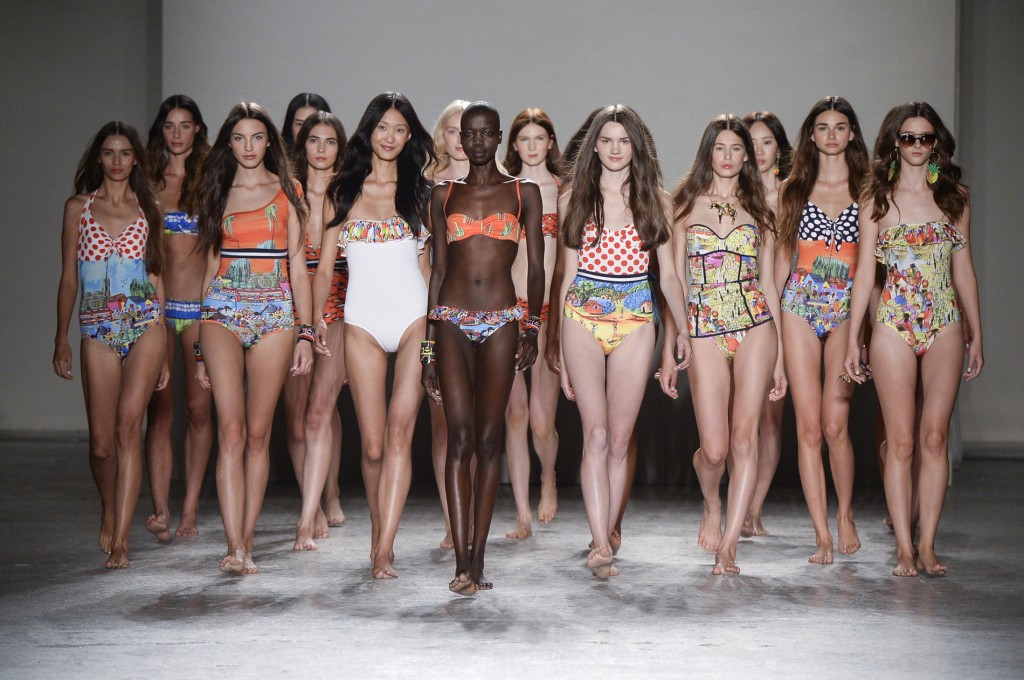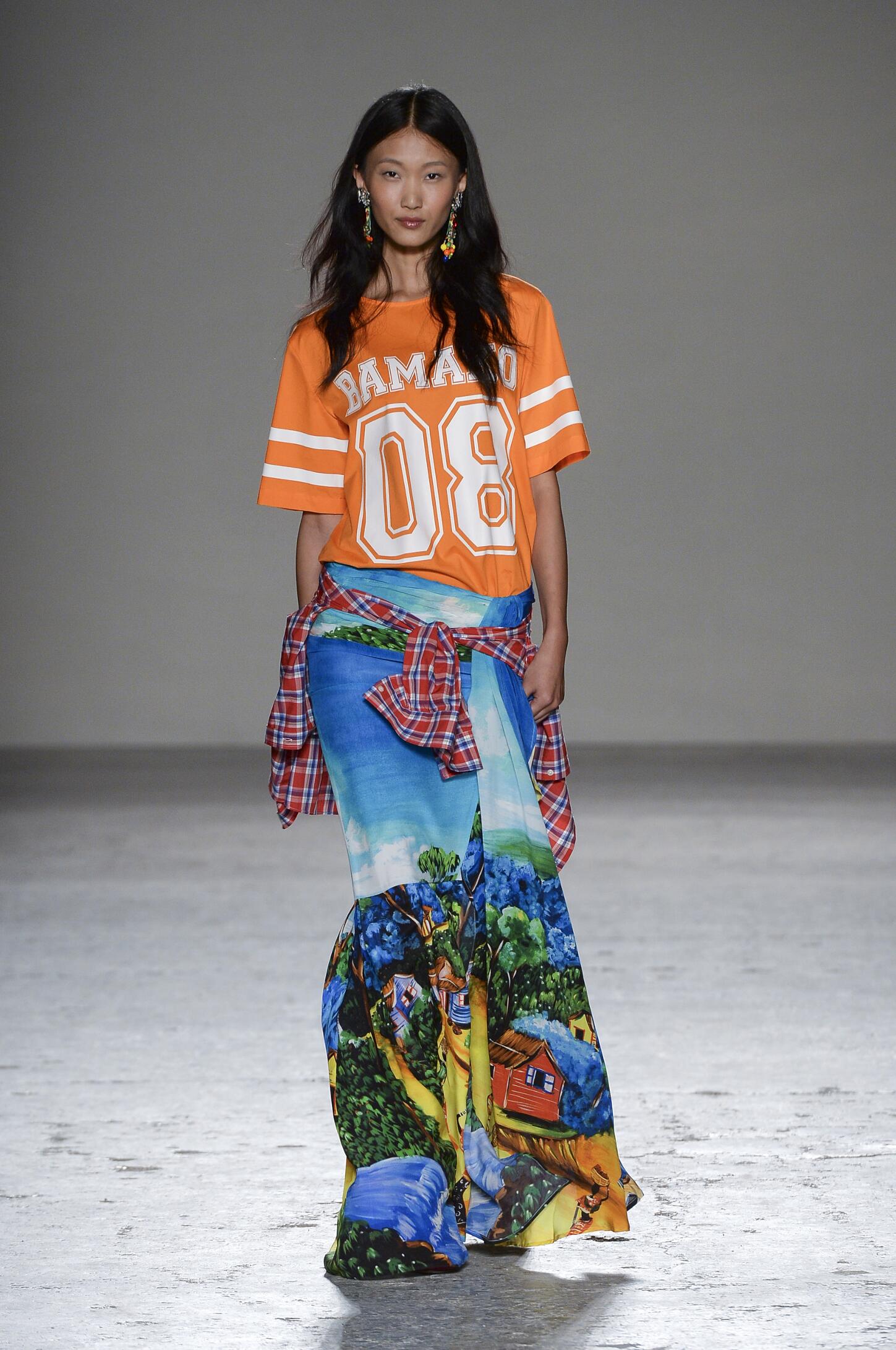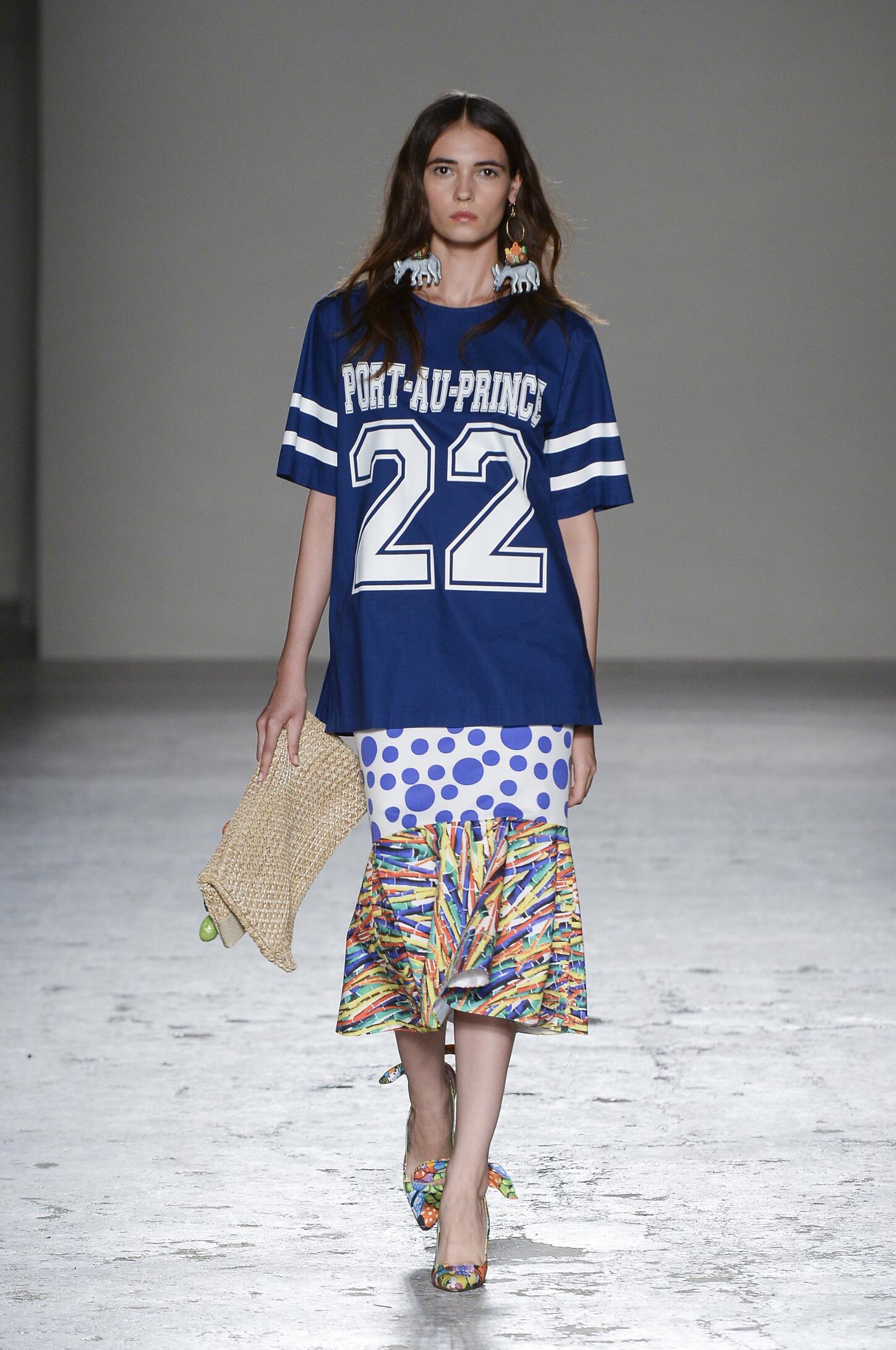STELLA JEAN SPRING SUMMER 2015 WOMEN’S COLLECTION – MILANO FASHION WEEK
Stella Jean presents this Spring Summer 2015 collection with a strong anthropological story characterized by a succession of cultural trompe-l’oeil. The fabrics and their combinations paint a new narrative landscape, where ethical fashion has a central role.
This explorative creation is born through the growing collaboration with the Ethical Fashion Initiative of the International Trade Centre (ITC), a United Nations agency. The Initiative enabled the use of hand-woven textiles made by women in Burkina Faso and Mali and jewelry made by Haitian artisans.
The collection is a declaration of intent and confirms Stella Jean’s commitment to testifying, sharing and tracing back unimaginable and secular traditions through narrative images. The tones, sometimes epic, at others descriptive or ironic, reveal more than what history books can tell.
Here, the textiles act as reporters conveying a collective memory. As a testimony to this engagement, the collection introduces the elegant and retro Doctor Bag – borrowed from an Italian doctor – revisited with the colours of bogolan, the traditional mud-cloth from Mali, and the striped hand-woven fabric from Burkina Faso.
Yet this Stella Jean’s Spring Summer 2015 collection is characterized by something new: the emotional return of the designer to her home: Haiti. A country described by André Malraux as “the most amazing experience of the magic art of the 20th century”, Haiti was unveiled like never before through ‘Art Naïf’, a movement marked by active observation built around a simple soul.
This artistic perspective is an expression of life, nature and spirit, animated by the market women and their daily multi-coloured vanity, full of dignity. The market, acting as social barometers, is where we can meet these proud vendors adorned with scarves enhancing femininity.
Adding to the hustle and bustle of the market, “tap-tap” buses also have a strong presence in recreate this unique atmosphere. The “tap-tap”, the traditional means of public transport, are also described as “pop art on wheels”. Adorned with subjects belonging to religious, popular and historical tradition; ironic phrases, proverbs or messages; the tap-tap are painted by artists who attend art schools specialized in tap-tap painting.
Donkeys, another important means of transportation and labor, and sugar cane, are also recurring Haitian elements that reappear on prints and hand-painted fabrics, completing the visual landscape of this collection.
Thus, this collection is an authentic cultural symposium: a conversation of visions and expressions of distant and contrasting worlds only in appearance, united under an impeccable aesthetic linking Burkina Faso, Haiti, Mali and Italy. A reversal of Babel.







